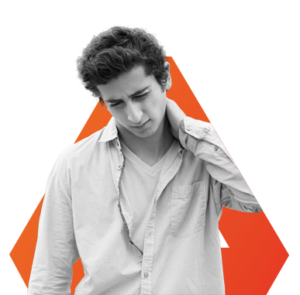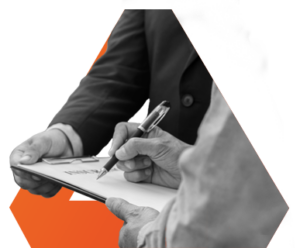What to do After a Chicago Car Accident
Even if you are a careful driver, you still risk getting in an accident every time you’re on the road. In 2021, over 1300 people in Illinois were killed in car crashes, making it the deadliest year for crashes since 2007. In Chicago, hit-and-run crashes have spiked alarmingly since 2020 — up over 18%.
If you are in a car crash, it might not be obvious what you should do next. Read on to see what our car accident attorneys have to say about what to do after a car accident to ensure you’re safe, following the law, and know what to expect from the insurance company.
5 Things to Do at the Scene of a Chicago Car Wreck
Whether your accident was minor or severe, there are several things you should take care of at the scene immediately after the accident. Your emotions may be running high after a car wreck, but missing information or neglecting evidence at the scene can make it harder on you and your possible insurance claim later.
Regardless of what you think happened to cause the accident, never discuss fault or make statements to other parties involved. Even an innocuous comment, made out of concern or instinct, can hurt you later.
Refer to this checklist to know what to do immediately following a car accident.
 01 Stay Calm and Check for Injuries
01 Stay Calm and Check for Injuries
Tend to yourself and check on any passengers. If you or a passenger are hurt, call 911 or ask someone else to do so. Try to stay calm and wait for emergency personnel to arrive.
 02 Keep Yourself and Others Safe
02 Keep Yourself and Others Safe
If your car is drivable, move it away from traffic and to the side of the road. Warn other drivers by turning on your hazard lights or setting up road flares. Get yourself and others away from the road.
If your car is undrivable, call a tow truck to remove the vehicle and keep the receipt. The police may also call a tow truck if you cannot call one. If the Chicago Police Department tows your vehicle, you can dial 311 or search the online database to determine its location.
 03 Call the Police and Make a Report
03 Call the Police and Make a Report
Calling the police after a car accident in Illinois is required for all cases unless no one is injured and less than $1,500 in damages occurred. Having a copy of the police report about your accident is crucial to filing a claim with your insurance, so be sure to note the name and badge number of the responding officer to reference later if needed.
Chicago’s non-emergency police number is 311. You can request a copy of the CPD crash report through their website. If the Illinois State Police filed the crash report, a copy can be obtained online or by mail. Confirm with the responding officer at the scene how you can get a copy of the report when it’s complete.
Read What Happens if You Don’t Call the Police After an Accident
 04 Document the Scene
04 Document the Scene
Take photos and video of the entire accident scene to record vehicle damage, property damage, and the license plates of all vehicles involved. If there are any nearby witnesses, get their report of what happened and ask for their contact information.
Having your own timestamped documentation from multiple angles and perspectives will help corroborate your account of the accident when it’s time to file an insurance claim.
 05 Exchange Information
05 Exchange Information
Swap contact and insurance information with the other driver involved in the accident. The most important information you should get from the other driver is:
- Name and contact info
- Insurance company and policy number
- Driver’s license and plate number
- Make, model, and color of vehicle
When speaking to the other driver, don’t make accusations or say anything that could be construed as admitting fault. Sticking to the facts will strengthen your case for an insurance claim.
What To Do After a Chicago Auto Accident
Once you’ve safely left the scene, you can begin the recovery process and start to deal with any injuries and/or financial losses. Here’s what you need to know about working with your insurance company, keeping records of your injuries, and contacting one of the best personal injury lawyers in Chicago.
Illinois has a fault-based insurance system, which means the party found responsible for the accident is liable for damages such as medical bills.

Get Medical Care & Keep Your Records
In addition to the information you collect at the accident scene, it is important to keep medical records of other expenses that come up. If you are in the hospital immediately after the accident, ask for itemized receipts of all expenses and treatments.
You may also have received injuries in the accident but didn’t experience pain or symptoms until later. Keep track of any medical reports and treatments you receive, even if they are weeks after the wreck.
If you cannot work or lose your job due to the injuries you suffered, you may be able to recover damages for your lost wages.

Contact Your Insurance Company
When you’re ready to contact your insurance company and file a claim, make sure to have all the information and documentation handy. Ask your insurer if there is a deadline for filing a claim and what the timeline for hearing about your case will look like.
A few questions to ask your insurance company include:
- What happens if my car is totaled?
- Will the insurance company pay the repair shop directly, or will I pay out of pocket?
- While my car is being fixed, can I be reimbursed for my rental?
- How will filing a claim affect my premiums?
Don’t Wait Too Long To File Your Claim
It’s important to act quickly after a car accident, especially when dealing with insurance. While most providers require you to report a crash within 24–48 hours, the legal deadline for filing a lawsuit is different. Learn how long you have to file a car accident claim in Illinois.

File a Claim Against The Other Driver’s Insurance
You do have the option to file a claim against another driver’s insurance if they were the party at-fault. However, you shouldn’t speak to the other driver’s insurance adjuster without consulting a lawyer first. Don’t sign paperwork or share any of your information or evidence; it could be used against you to deny your claim.
Illinois follows the comparative negligence law, which can affect the damages you collect following an accident. If the other driver is found to be over 50% at fault for the accident, you can file a claim with their insurance to recover damages.
There are two categories of damages you can recover:
- Economic damages such as medical bills and lost wages
- Non-economic damages such as pain and suffering or loss of companionship
Be wary if the other driver’s insurance gets back to you quickly with an offer — they may be trying to lowball you to settle the claim as soon as possible.
Illinois Car Accident Insurance Requirements
In Illinois, all vehicles must be covered by:
- a minimum of $25,000 for injury or death of one person
- $50,000 for injury or death of two or more people
- $20,000 for property damage
These amounts ensure coverage even if the other driver involved in the accident is uninsured.
The Claims Process After a Chicago Car Accident
When you’re injured in an accident, you either file a first-party or third-party claim. A first-party claim is filed with your own insurance company, while a third-party claim is against another party or business’s insurance carrier.
The type of claim will depend on who was at fault. Regardless of which insurance company is deemed liable, they will investigate your losses, calculate the value of your losses, and usually offer a settlement. If your claim is denied or liability is questioned, you can typically appeal or pursue other legal action.
Keep in mind, insurance companies cannot delay or stall indefinitely. Part 919.80(b)(3) of the Illinois Administrative Code requires an insurer to provide a reasonable written explanation of the delay for any property damage liability claim unresolved after 60 days from the date it was reported or after 40 days for a collision claim.
While your claim is pending, continue receiving any medical treatments advised by your doctor. Continue to refrain from publicly discussing fault, the severity of your injuries, or financial losses.
Contact a Chicago Car Crash Lawyer for Help
Knowing what to do after a car accident can be tough, but you don’t have to go through the process alone. You have rights and should discuss the specifics of your case with an attorney who knows the law around car accidents in Illinois. A lawyer will compare each party’s insurance coverage to see if more than one policy might apply or could help you recover more than another.
Enlisting an attorney’s assistance can expedite the claims process and likely improve your payout by an average of over $50,000, according to Martindale-Nolo Research. Get in touch with a car accident lawyer as soon as possible for help dealing with insurance companies and recovering the maximum possible compensation.